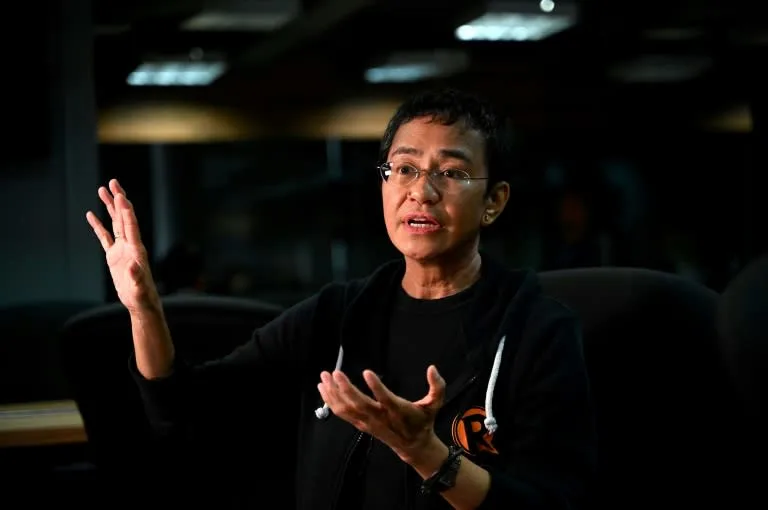Philippine Nobel laureate Ressa to appeal cyberlibel conviction in Supreme Court
2 min read
Philippine Nobel Peace Prize winner Maria Ressa will appeal a conviction for cyberlibel in the country’s highest court, her lawyer said Tuesday, as the veteran journalist battles to stay out of prison.
The Court of Appeals had rejected a motion to reconsider its upholding of her 2020 conviction, a move her lawyer Ted Te said was “disappointing”.
Ressa, 59, and her former colleague Rey Santos Jr face lengthy jail sentences for the conviction, which her news website Rappler has vowed to fight.
The latest appeal rejection, handed down on Monday, “ignored basic principles of constitutional and criminal law as well as the evidence presented,” Te said in a statement.
“Maria and Rey will elevate these issues to the SC (Supreme Court) and we will ask the SC to review the decision and to reverse the decision.”
Ressa has long been a vocal critic of former president Rodrigo Duterte and the deadly drug war he launched in 2016, triggering what media advocates say is a grinding series of criminal charges, probes and online attacks against her and Rappler.
She and Russian journalist Dmitry Muratov were awarded the 2021 Nobel Peace Prize for their efforts to “safeguard freedom of expression”.
– ‘Holding power to account’ –
Ressa said the latest legal blow was “a reminder of the importance of independent journalism holding power to account”.
“Despite these sustained attacks from all sides, we continue to focus on what we do best -– journalism,” she said in a statement.
In its decision, the Court of Appeals said the motion for reconsideration was “unmeritorious” as the matters raised had “already been exhaustively resolved and discussed”.
Ressa, who is also a US citizen, is fighting seven court cases, including the cyber libel case, for which she has been on bail and faces up to nearly seven years in prison.
The cyber libel law was introduced in 2012, the same year Rappler was founded.
Rappler, which also faces multiple cases, had to fight for survival as Duterte’s government accused it of violating a constitutional ban on foreign ownership in securing funding, as well as tax evasion.
Days before Duterte left office, the Philippine Securities and Exchange Commission ordered Rappler to shut down for violating “constitutional and statutory restrictions on foreign ownership in mass media”.
Rappler is challenging the decision.
The company’s future and its battle in the country’s highly politicised legal system under President Ferdinand Marcos is uncertain.
Marcos, who took over from Duterte on June 30, has given few clues about his views on the website and the media in general.
In a recent speech, Marcos said he believed in the “importance of upholding the universal right of free speech and press freedom as well as giving and receiving accurate information”.
But activists fear he could worsen human rights and freedom of speech in the country.






